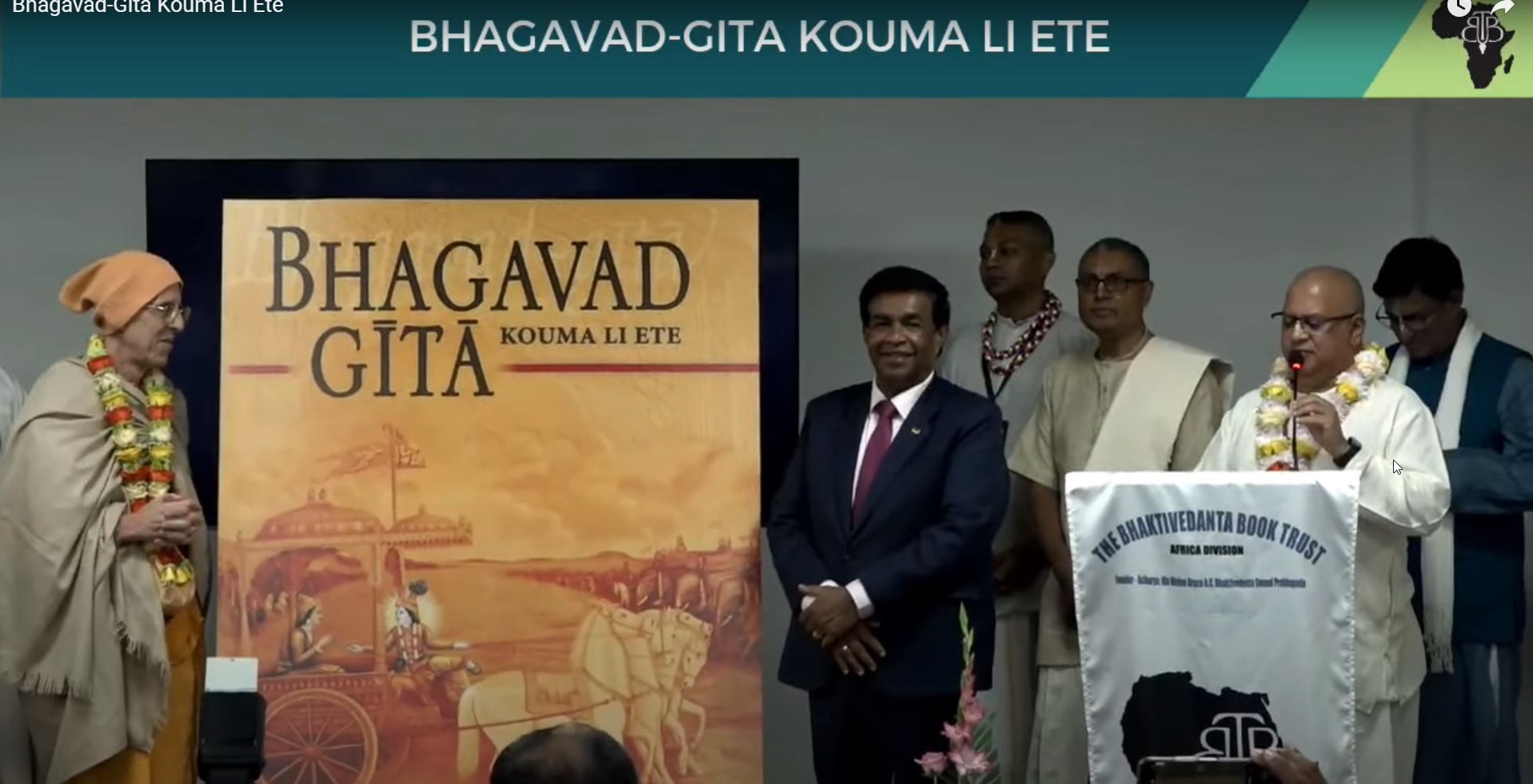Is ISKCON Devotee’s “Angry Birds Yoga” Set to Go Viral?
By Madhava Smullen | Jun 26, 2011

The insanely popular mobile game “Angry Birds” has been used as the basis for an essay explaining Krishna conscious philosophy, with the blessings of the game’s creator Peter Vesterbacka. And the idea of “Angry Birds Yoga” looks like it could take off.
Developed by Rovio Mobile, Angry Birds is one of the biggest pop culture phenomenons of all time. It was first released for Apple’s iPhone OS in 2009, and has since been downloaded 50 million times, making it the piece of software that has been installed on the most number of handsets worldwide. The game notches up 200 million minutes of play time every day—close to the number of minutes viewers in the United States spend watching the average prime-time television program.
The game itself is simple yet addictive—players use different kinds of birds, propelled by a slingshot, to break apart bricks made of different materials and to eliminate the evil green pigs.
In May of this year, Giridhari Dasa, president of the ISKCON Community of Pandavas Paradise in Brazil, didn’t know how much attention he’d get when he used the game as an anology in an essay on his blog, http://pandavas.wordpress.com.
“I had been thinking about how to use something from popular culture to draw attention to the message of Krishna consciousness,” he says. “And I realized that Angry Birds was the perfect metaphor.”
In his essay, Giridhari assigned an important philosophical principal to each character in the game, according to their personality or look. Positive characteristics went to the Angry Birds, likened to qualities of the individual soul, while each of the green pigs was likened to an “anartha,” or one of the obstacles we must defeat on our path to self-realization.
Giridhari advised readers that they should seek wisdom (likened to the White Bird), use their intelligence (the Yellow Bird), and practice meditation (the Black Bird). They should also live a noble life (the Boomerang Bird), and control their senses headed by the tongue (the Red Bird), with great determination (the Big Red Bird).
“Last but not least, seeking always the help of the Divine (the Mighty Eagle), you can blast away the Green Pigs of destructive mentality and lead a truly blissful and enlightened life!” he wrote.
Before posting the essay, which incorporated wisdom from the ancient text Sri Upadeshamrita as well as others, Giridhari sent it to Rovio CEO Peter Vesterbacka. He didn’t expect a personal reply, but he got a surprisingly enthusiastic one from the man himself:
“Very cool! I can see Angry Birds Yoga becoming a worldwide craze,” Vesterbacka commented on the article. “Anything we could do about that?”
The word began to spread from there. Giridhari’s essay on Angry Birds Yoga was next mentioned on June 3rd in the blog of famous Brazilian columnist Cesar Giobbi, which gets 800,000 pageviews per month; on June 8th and 15th in major Brazilian newspapers “O Estado de Minas” and “O Diário de Pernambuco”; and on June 20th in an article about the history of the popular game in the UK’s Sunday Telegraph newspaper.
The Brazilian articles all quoted from Giridhari’s essay, and praised his idea of extracting yoga truths from a simple game. One even mentioned the Pandavas Paradise ISKCON community.
Giridhari is not yet sure how serious Vesterbacka was about doing something about Angry Birds Yoga. But if the idea goes viral, he hopes to expand the essay into a book.
In the meantime, he has sent his essay to hugely popular New York Times columnist David Pogue, and to a tech editor who’s an Angry Birds fan at Brazil’s biggest news corporation, hoping to create a viral sensation.
“It’s our duty to help bring people in touch with this wonderful philosophy by whatever channel we can find,” Giridhari says. “I’m a firm believer that today’s massively digital and connected world requires us to make use of the way information is dissipated. So I wanted to see if I could share some of the basic points of our philosophy and lifestyle in such a way as to make it attractive enough so that other outlets would want to share it and appreciate it. That involves using something that is already popular but giving it your own ‘spin,’ and doing it in such a way as to keep itas universal as possible–while being careful to not water it down to meaninglessness.”
“This helps draw attention to the message and the messenger, in this case myself,” he concludes. “The more attention we can draw to ourselves as valid sources of spiritual knowledge, the more effectively we can realize our goals of outreach.”












